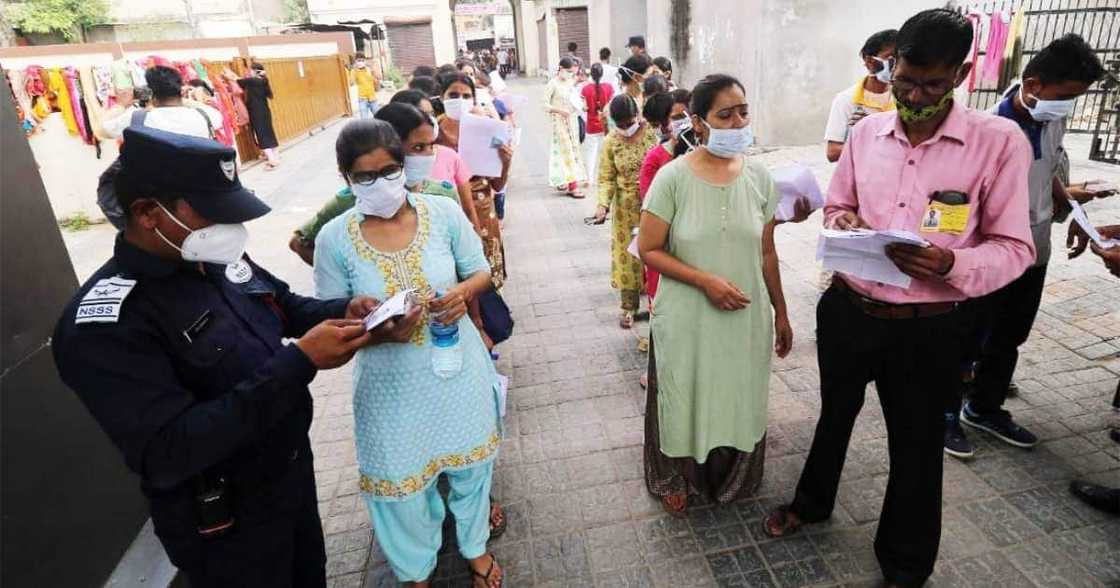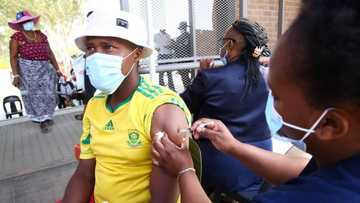India Shuts Down Internet To Curb Cheating in Teacher Eligibility Exam
- Authorities in India were forced to shut down the internet to curb potential cheating during the Rajasthan Teacher Eligibility Test (REET) exams
- That threw more that 25 million residents into an internet blackout, with only the essential services allowed to use broadband
- Other measures that were used include installing CCTV cameras in all examination centers and giving new masks to the candidates
PAY ATTENTION: Follow Briefly News on Twitter and never miss the hottest topics! Find us at @brieflyza!
More than 25 million people in India had to contend with an internet shutdown as the government puts in place measures to curb exam cheating.

Source: UGC
This is due to the fact that hundreds of thousands of candidates recently sat the Rajasthan Teacher Eligibility Test (REET), one of India's most revered exams.
As a matter of fact, REET is an assessment that offers many the coveted chance of joining the teaching practice for public primary and secondary schools.
Exam cheating
CNN reports that the last time the exam was held was in 2018, which is the reason that there are more candidates than seen before.
PAY ATTENTION: Never miss breaking news – join Briefly News' Telegram channel!
During the period, thousands of examination centers were set up across the state of Rajasthan, which saw candidates travel from different places on free buses paid for by the government.
One thing has, however, stood out predominantly; the fact that there has been rampant irregularities in the past written exams.
It is against this backdrop that the authorities clamped down on internet connectivity to seal some of the loopholes that have been used to aid the malpractices before.
"There were so many candidates, we just wanted to make sure there wasn't cheating," said Jaipur divisional commissioner Dinesh Kumar Yadav.
He reiterated that students have employed different measures in the past to cheat, which annoys the rest who viewed it as unfair.
More than 10 districts shut down internet connectivity on mobile phones but allowed broadband internet to ensure other services were not disrupted.
Other efforts to curb cheating
Apart from the internet shutdown, other measures that have been put in place include CCTV cameras at all examination centers.
Furthermore, candidates were barred from carrying their own masks from outside, which meant they had to discard theirs and use fresh ones provided at the centers.
The entire process of printing, transportation and printing of the examination papers was not only done under surveillance but also recorded.
Cheating is rampant
India has struggled with exam cheating for several years due to desperation caused by the emphasis placed on education since it serves as the one sure way to lift many from poverty.
In 2015, the country received global attention when family members in Bihar state climbed on buildings around the school to hand over answers to the candidates who were sitting grade 10 examinations.
Four years later, a school in Karnataka state was the subject of public fury after making students wear cardboard boxes on their heads as they sat their exams.
Source: Briefly News

Maryn Blignaut (Editor in Chief) Maryn Blignaut is the Editor-in-Chief at Briefly News. She holds a BA in Communication Science from the University of South Africa (2016) and has over seven years of journalism experience. She specialises in digital journalism and feature writing. Maryn completed the AFP Digital Investigation Techniques course and multiple Google News Initiative training programmes. For enquiries, contact maryn.blignaut@briefly.co.za.

Kelly Lippke (Senior Editor) Kelly Lippke is a copy editor/proofreader who started her career at the Northern-Natal Courier with a BA in Communication Science/Psychology (Unisa, 2007). Kelly has worked for several Caxton publications, including the Highway Mail and Northglen News. Kelly’s unique editing perspective stems from an additional major in Linguistics. Kelly joined Briefly News in 2018 and she has 16 years of experience. Kelly has also passed a set of trainings by Google News Initiative. You can reach her at kelly.lippke@briefly.co.za.


